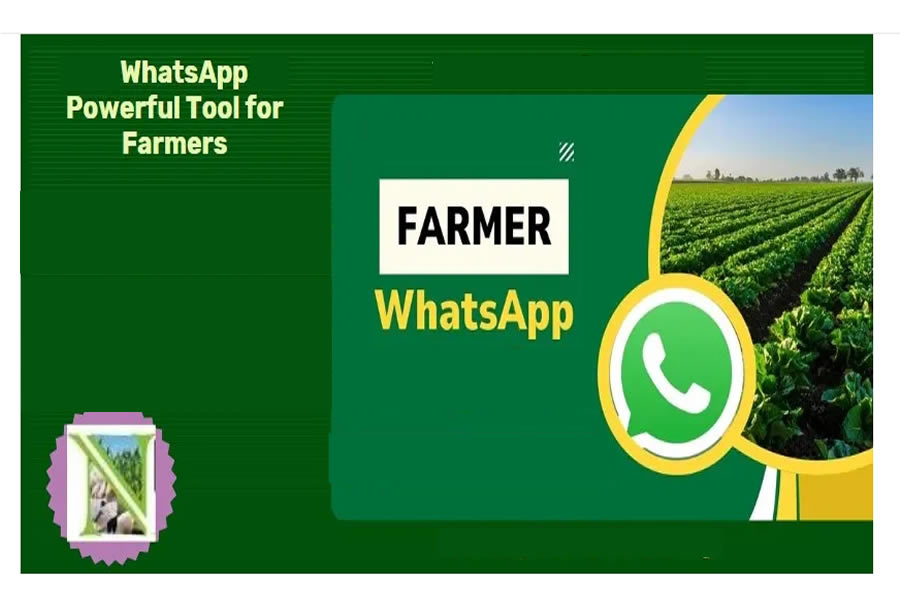How to Use WhatsApp to Manage Orders and Market Your Farm Produce
In today’s Nigeria, where many small businesses struggle with marketing costs, WhatsApp has become a powerful, low-cost tool for farmers and agribusiness owners. With just your phone and data, you can connect directly with customers, manage orders, and grow your sales without middlemen.
Here’s how you can make WhatsApp your digital marketplace and order manager for your farm produce.
- Set Up a Professional WhatsApp Business Account
Download WhatsApp Business App (free on Android/iOS).
Add your farm/business name, logo (if you have one), and description.
Include important details like: location, opening hours, product list, and contact numbers.
This gives your farm a professional look and builds customer trust.
- Create a Product Catalog
WhatsApp Business allows you to upload a catalog—a mini online shop.
Take clear photos of your farm produce (yam, maize, tomatoes, palm oil, etc.).
List prices, packaging sizes, and availability.
Customers can browse your catalog and place orders directly without endless back-and-forth chats.
- Use Labels to Manage Orders
Instead of writing orders in a notebook, use WhatsApp Business labels to organize customers:
( a.) New Orders
( b.) Pending Payment
( c.) Ready for Delivery
( d.) Completed
This helps you track progress and avoid missing any customer’s request.
- Automate Responses for Faster Service
Set up Quick Replies for common messages like:
“Yes, fresh tomatoes are available today.”
“Delivery to Lagos costs ₦2,000.”
Use Automated Greeting to welcome new customers.
Use Away Messages so customers know when you’re offline.
This saves time and makes you look professional.
- Market Your Farm Produce Through Status
Treat your WhatsApp Status like a free billboard.
Post daily updates with:
Pictures/videos of fresh harvest.
Short clips of packaging or delivery (builds trust).
Customer testimonials or reviews.
Announcements about discounts or bulk sales.
Tip: Add captions with prices so customers don’t need to ask.
- Create Customer Broadcast Lists
Use the Broadcast feature to send updates to multiple customers at once.
Example: “Fresh plantain available this week. ₦4,500 per bunch. Delivery across Abuja.”
Unlike groups, recipients see the message privately—so it feels personal.
- Manage Payments and Delivery Smoothly
Share your bank details or mobile money options directly in chat.
After payment, send a receipt screenshot or confirmation message.
Partner with local delivery riders or logistics companies and keep their contacts handy for fast dispatch.
- Build Trust Through Transparency
Always update customers on stock availability.
If produce is finished, let them know instead of keeping them waiting.
Share photos/videos of the produce before delivery to reduce complaints.
- Grow Your Customer Base Organically
Ask satisfied customers to save your number so they don’t miss your status updates.
Encourage referrals: give small discounts to customers who bring new buyers.
Join farming or food supply groups on WhatsApp—but don’t spam; share value first.
- Track Your Growth
At the end of each week or month, check:
How many new orders came through WhatsApp.
Which products sold fastest.
Which customers buy repeatedly (they are your VIPs—treat them specially).
This helps you refine your farming and marketing strategy.
Finally
WhatsApp is more than just a chatting app—it can be your free digital office for selling farm produce. By setting up a professional profile, using catalogs, managing orders with labels, and marketing consistently through status updates, you can cut off middlemen, reach more customers, and boost your income.
In Nigeria’s challenging economy, farmers who embrace simple digital tools like WhatsApp will always have an advantage.

